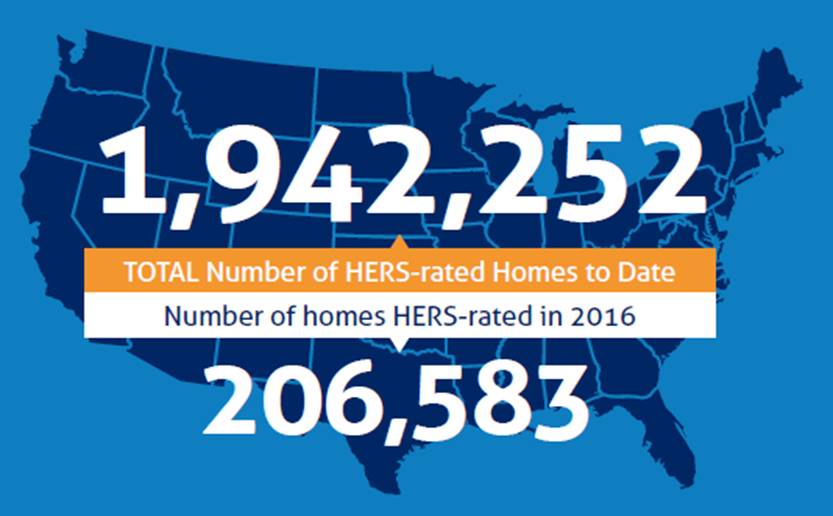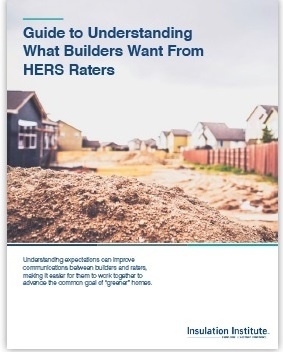Among the many factors consumers should consider when buying a home is the cost of ownership — recurring expenses that are variable and not always obvious. One of those is energy costs, which are estimated to consume up to 4% (roughly $2,200 per year) of the average household’s income, before taxes.[1] Building more energy efficient homes, however, has helped decrease electricity demand, which was down 1.1% in 2016.[2] That’s certainly great news, but many consumers in the market for a home have little or no information on the energy efficiency of homes they may be interested in buying. A new effort by Residential Energy Services Network (RESNET) and the Appraisal Institute, the association of professional real estate appraisers, will make home energy efficiency more transparent to buyers.
Details »Insulation Institute Blog
Posts Categorized: HERS Scores
How Builders Can Win With Energy Use Data
Transparency is a growing macro-trend across numerous markets. Increasingly, today’s consumers, especially millennials, want to know exactly what goes into the clothes they wear, the food they eat and the homes they buy. For homes, one of the top things today’s buyer wants to know about is energy use. Fortunately for buyers, energy use transparency is increasing, with information available through local utilities, real estate Multiple Listing Services (MLS) and through websites like EnerScore, which uses publicly available data on home size, type of energy use and other information to estimate home energy costs. This transparency of home energy use allows consumers to obtain energy use data before they buy or rent a home and compare homes based on performance, which is good for them, but is it good for builders? Ultimately, that will come down to how builders adapt to this trend.
Details »New Guide Reveals What Builders Think of HERS Raters
HERS ratings are fast becoming a norm for residential new construction. In 2008, 100,000 homes received a HERS rating. In 2016, we passed the 100,000 market in just the first half of the year. The growth in HERS ratings has in turn elevated HERS raters into an increasingly important advisory role for many builders. More than just providing a score, raters frequently influence the specification and purchase of energy-related home products, train subs on proper installation, perform QA, troubleshoot and of course provide needed building science knowledge. All this begs one question: what do builders think about this new player in the space?
Details »


